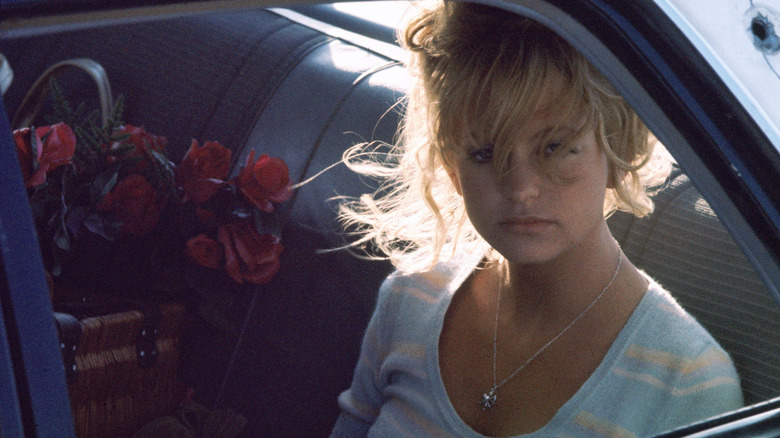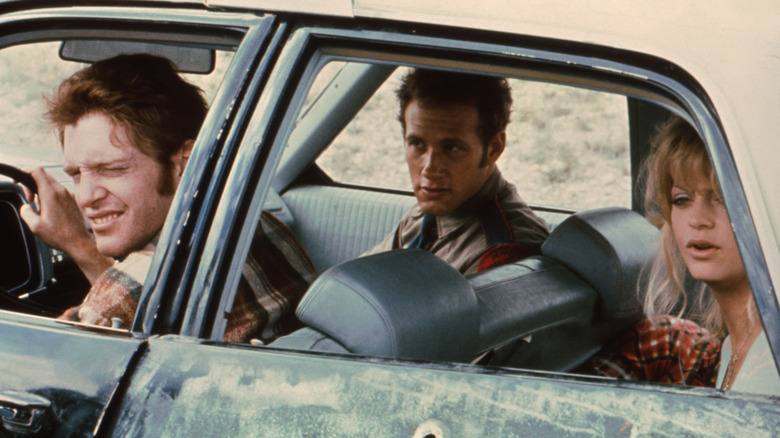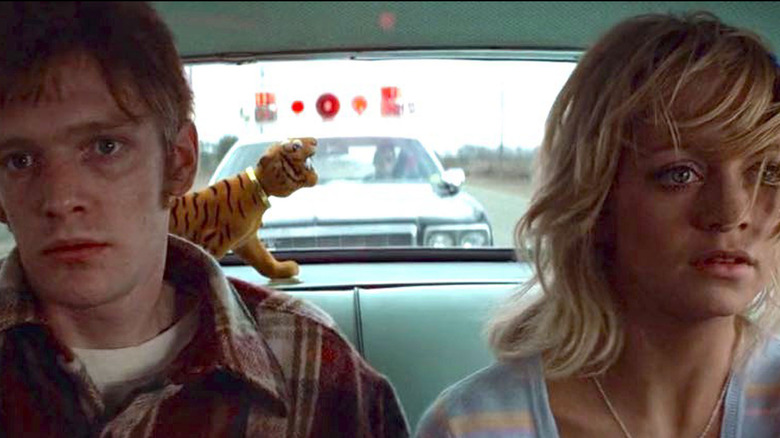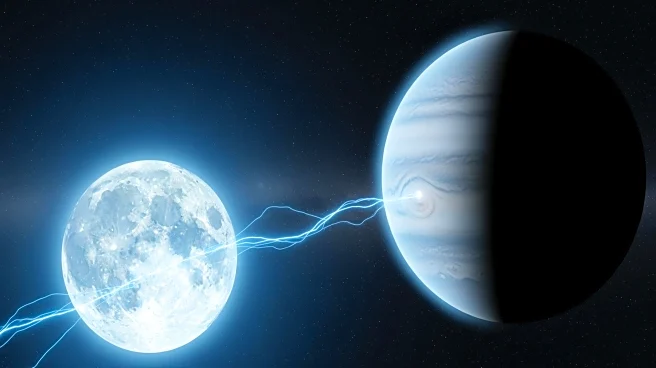
To quote "Lawrence of Arabia," big things have small beginnings. Individually but especially in collaboration with each other, director Steven Spielberg and composer John Williams are responsible for several
sea changes in their respective fields. Spielberg not only helped institute the summer blockbuster but was instrumental in making genre films become just as prevalent and prestigious as melodramas or period pieces. Williams has been a key figure in getting music composed for the screen to break away from its marriage to the moving image and become desirable to listen to on its own. His pivot from jazz-based scores and Broadway-style arrangements to lush, heavily thematic, symphonic music made the score soundtrack album just as viable as a pop source cue soundtrack, and transformed the bulk of music for films into something that can and should stand on its own in addition to supporting the movie that it's for. Without these two artists, the landscape of music and movies over the last 50 years would look so different that it'd be almost unrecognizable.
Yet their first project together couldn't have been more unassuming. Rather than a massive musical shot across the bow like "Jaws" or "Close Encounters of the Third Kind" would be, Spielberg and Williams' first collaboration was for 1974's "The Sugarland Express," a film that looks positively quaint by comparison. Yet despite the lack of killer sharks, extraterrestrials, a world war, or a historical figure, "The Sugarland Express" is still undeniably the work of both men, and one that remains underrated a little over half a century later. Of course, if either artist hadn't enjoyed working with one another on the film, we may never have discovered the riches they were to produce later. Fortunately, Spielberg and Williams' work on "Sugarland" was not only fruitful but also set the pace for a legendary run of films and film music to follow.
Read more: The Greatest Character Actors Of All Time, Ranked
Williams Proved In 'Sugarland' That He Could Bring Emotional Intimacy To Spielberg's Scope

"The Sugarland Express" may look ordinary next to Spielberg and Williams' more fantastical works, yet it's certainly not lacking for scope. The film, written by Hal Barwood and Matthew Robbins, was based on a real-life incident that occurred in Texas in the late 1960s, in which a young couple — Lou Jean (Goldie Hawn) and Clovis (William Atherton) in the film — break the husband out of prison and head across the state to retrieve their young son from the foster parents that the law insisted he be given to. Through a series of mishaps and shenanigans, the couple end up kicking off a slow-motion car chase to Sugar Land, Texas. After taking a patrolman hostage on their quest to get their child back from the law, they become unlikely folk heroes. The film is a dramedy that recalls the contemporary work of Robert Altman — this is the movie in which Spielberg's early penchant for overlapping dialogue turns up the most — yet is undeniably Spielberg's in retrospect. It continues his fascination post-"Duel" with the road movie, and is centered around a family unit that's fractured yet is trying desperately to make itself whole (something which resonates even harder after "The Fabelmans" exposed the director's turbulent childhood).
Given the myriad of strong emotions in the movie, Spielberg initially approached Williams to score the film based on the strength of the latter's work on Mark Rydell's 1969 "The Reivers," which featured a very bucolic, large-scale score. Williams pitched Spielberg on a different approach instead, hiring Toots Thielemans, a Belgian harmonica soloist, to become the centerpiece sound of the movie's score. The resulting music by Williams for "The Sugarland Express" is thus the first instance of Williams bringing an astute emotional intimacy to Spielberg's work. Rather than simply trying to match (or exceed) the visual scope of the film, Williams' music instead highlights the shifting emotional tones of the story and the characters, the score veering between a playful, wistful, charming, and then ultimately, tragic sound. It's indeed a score that doesn't strike the listener right away as so many of Williams' future scores for Spielberg films would, yet it demonstrates depth the more it's listened to.
'Sugarland Express' Established A Rapport That Yielded A Legendary Partnership

It's entirely possible that Spielberg was just plainly impressed with Williams' music, and it's only that which caused him to re-hire the composer to work on "Jaws" the year after "The Sugarland Express." Yet Williams' deft highlighting of Spielberg's images and storytelling in "Sugarland" might have impressed the director even more than the music by itself, and indeed it was this collaborative rapport between the two that helped the music for "Jaws" become the icon that it still is today. Legend has it that Spielberg had to keep himself from laughing when Williams initially pitched the filmmaker on the two-note motif that Williams had devised for the shark. Yet Spielberg, likely due to the duo's working relationship on "Sugarland," trusted the maestro, and the rest was cinematic history.
It says a lot about Spielberg and Williams' partnership that the collaboration has lasted as long as it has, carrying on through both fair and foul weather. Spielberg is as loyal as any filmmaker in Hollywood, as he tends to work with people as often as is allowed (given scheduling) or appropriate (given a role). Yet Williams has only missed out on just five Spielberg movies ever since their first collaboration on "The Sugarland Express": "Twilight Zone: The Movie" which was scored by Jerry Goldsmith, "The Color Purple" with Quincy Jones, "Bridge of Spies" with Thomas Newman, "Ready Player One" with Alan Silvestri," and "West Side Story," which of course used a score already written for the stage musical by Leonard Bernstein. That means the remaining 29 movies that Spielberg has directed feature Williams' compositions, which is still a staggering record for any director/composer duo in history.
Of course, all good things must come to an end, and it's still unclear as of this writing whether Spielberg's next film (which is still untitled but is due for release in June of 2026) will feature a Williams score or not. Whatever happens, the fact that Spielberg and Williams have made many movies separately before and might do so again doesn't detract from how important their collaboration has been to cinema. Come what may, the two artists' names will forever be linked, so much so that when you think of just about any given image or moment from a Spielberg film, it'll be Williams' music that you'll hear in your mind.
If you're looking for the easiest way to keep up with all the major movie and TV news, why not sign up to our free newsletter?
Read the original article on SlashFilm.











